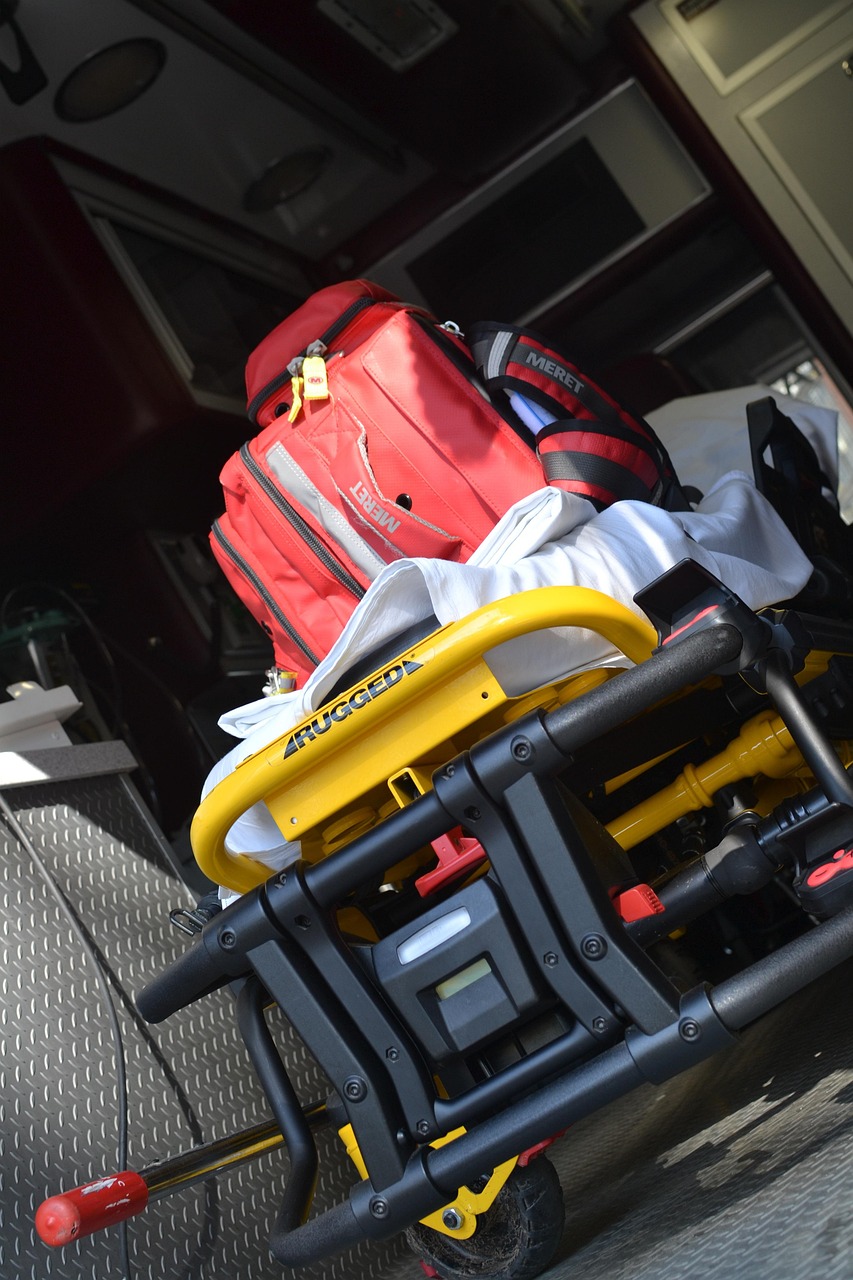




Paramedic Negligence Claims
What You Need to Know To Claim Compensation
Paramedics are highly trained to deal with medical emergencies, but there may be rare occasions when it all goes wrong and paramedic negligence claims may be filed. When we call 999, we expect rapid professional help, but sometimes a paramedic’s error or inaction may cause harm to a patient.
While paramedics typically provide life-saving care in incredibly difficult conditions, mistakes can and do happen. If you or a loved one have been affected by poor paramedic care, you may want to find out more about claiming compensation.
It is important to understand you may be entitled to file a medical negligence claim if you have been harmed because of a paramedic failing to provide the expected standard of care.
At Jefferies Claims, we partner with experienced lawyers who work on a ‘No Win, No Fee’ basis and we can advise you on your next step.
What Is Paramedic Negligence?
Paramedic negligence occurs when a paramedic does not provide the expected standard of care, resulting in harm or injury to a patient.
Paramedics are healthcare professionals and required to follow strict safety protocols. This means they are legally obligated to follow specific standards of practice.
Negligence may include:
- Misdiagnosing a life-threatening condition (e.g., heart attack, stroke)
- Failing to properly assess a patient’s symptoms
- Delaying transportation to hospital
- Using incorrect medical equipment or procedures
- Not administering necessary medication
- Injuring a patient during manual handling or while providing care
- Not following protocols for resuscitation or trauma management
To constitute negligence, it must be proved that the paramedic’s actions (or inactions) directly caused avoidable harm.
Common Examples of Paramedic Negligence
Understanding real-world examples helps to highlight the potential seriousness of such claims. Here are a few situations that may lead to a successful paramedic negligence claim:
- Delayed Response or Failure to Attend
Emergency services take an unreasonable amount of time to respond to a call. If this delay causes deterioration or may potentially be fatal, the affected party may have grounds for a claim.
- Improper Triage or Miscommunication
Paramedics must triage patients effectively and communicate important information to hospitals. Failure in this process may result in delayed treatment or misdiagnosis.
- Medication Errors
Giving the wrong drug or incorrect dosage can cause allergic reactions, overdoses, or inadequate treatment. Any of these may have serious consequences.
- Inadequate CPR or Resuscitation
Failing to provide life-saving interventions according to guidelines (e.g., not using a defibrillator) can be considered negligent.
- Physical Injuries During Handling
Improper lifting techniques, or the use of unsafe equipment can lead to spinal injuries, fractures, or other trauma. This may particularly occur with vulnerable or elderly patients.
In all instances you should always consult with a medical professional around life expectancy questions.
Who Can Make a Paramedic Negligence Claim?
Anyone who has suffered physical, emotional, or financial harm due to a paramedic’s negligence may be eligible to make a claim. In the case of death or severe incapacity, a family member may be able to claim on behalf of the victim.
Common claimants include:
- Patients injured or worsened by negligent care
- Parents claiming for harm done to children
- Executors or next of kin claiming after a wrongful death
Time Limits for Making a Claim
There is a three-year time limit for starting a paramedic negligence claim. This period usually starts from the date of the negligent act or when the injury was discovered. For children, the three-year limit begins when they turn 18.
There are exceptions, particularly in cases involving mental incapacity or wrongful death, so it’s always best to speak with a specialist solicitor as early as possible.
How to Prove Paramedic Negligence
To successfully pursue a claim, you’ll need to prove the following key elements:
Duty of Care – That the paramedic owed you a professional duty.
Breach of Duty – That they failed to meet an acceptable standard of care.
Causation – That this breach directly caused harm or worsened your condition.
Damages – That the harm led to physical, psychological, or financial consequences.
Evidence you may need includes:
- Ambulance service records
- Hospital reports
- Expert medical opinions
- Witness statements
- Photographs or video (if available)
A medical negligence solicitor can help gather the relevant documents and liaise with independent medical experts to assess the case.
What Compensation Can You Claim?
This is a common question. The value of a paramedic negligence compensation claim varies depending on the severity and long-term effects of the harm caused. Compensation may typically cover:
- General damages – For pain, suffering, and loss of amenity
- Special damages – For out-of-pocket expenses, travel, and loss of income
- Future costs – Including medical treatment, care, and equipment
- Psychological trauma – Including anxiety, PTSD, or depression
- Bereavement damages – In the case of wrongful death
Each case is unique. An experienced medical negligence lawyer can provide a more accurate estimate.
No Win, No Fee Claims
A ‘No Win, No Fee’ agreement means you won’t have to pay legal fees upfront. If your case is successful, the solicitor’s fees will typically be taken as a percentage of your compensation.
This arrangement generally makes it easier for victims to seek justice without the fear of financial risk.
Your Next Step
Paramedic negligence claims may often involve complex medical and legal questions. An experienced medical negligence lawyer will be able to assess your case, gather the correct expert opinions and guide you through the process.
Jefferies Claims partner with lawyers who can carefully review your case and who work on a ‘No Win, No Fee’ basis.
Contact us today at 0333 358 3034. Alternatively, complete our online contact form to arrange an free, no-obligation telephone consultation with a member of our expert team.
